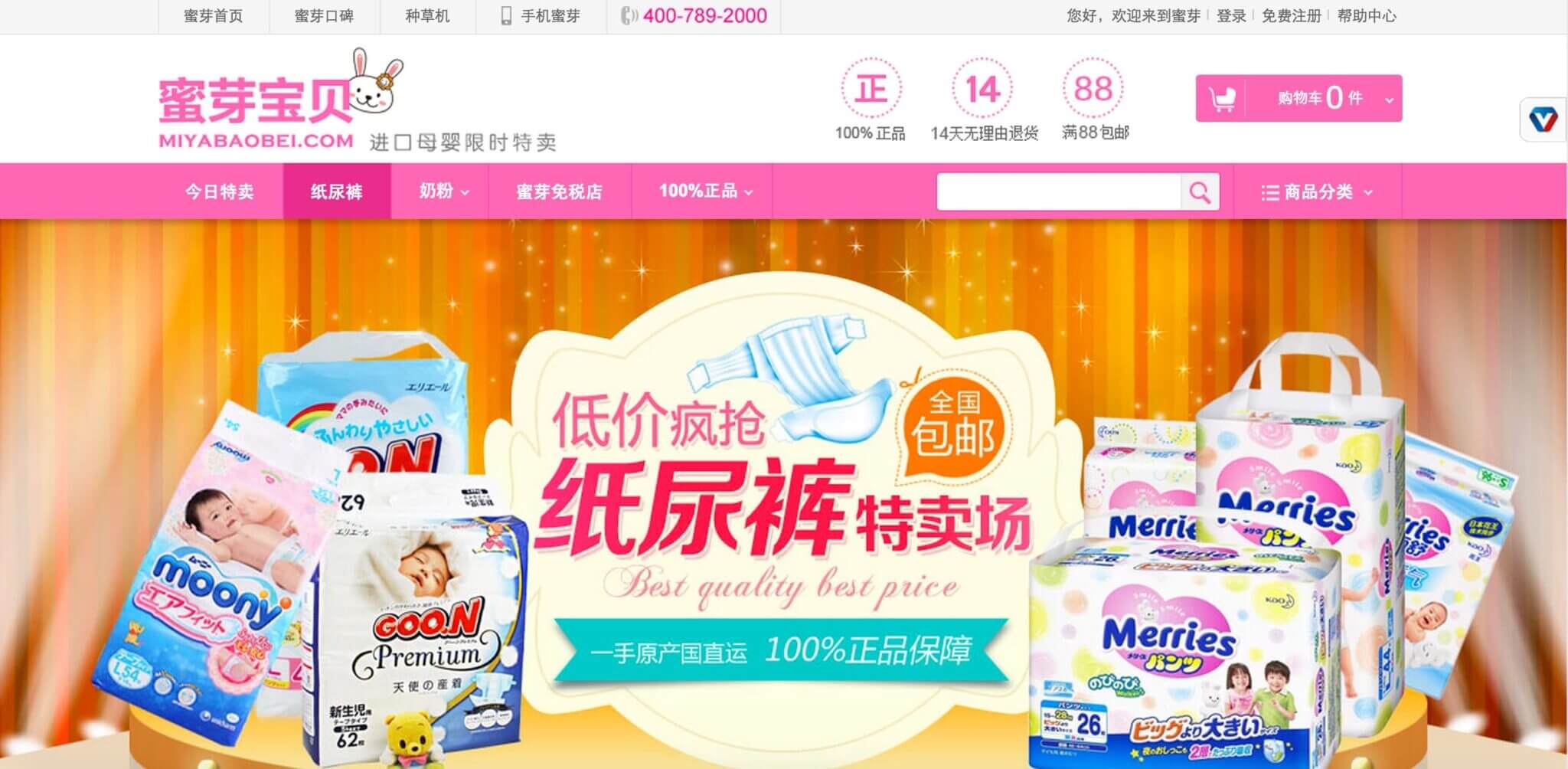From March 16th to March 18th, a special festival was held on miyabaobei.com, a Chinese e-commerce website. Its sales model is very similar to Zulily,which focuses on baby products flash sales, but the merchandise of Miyabaobei are mainly from overseas. A new born company and a vertical e-commerce website, this young Imported Diapers Shopping Festival helped Miyabaobei to prove its success by the $50 million GMV(gross merchandise volume) in three days.
The huge potential in Chinese E-commerce market has already been seen through the $9.3 billion GMV during the 11.11 Shopping Festival (The Single’s Day Festival) held by the Alibaba Group on Nov 11, 2014. This tremendous number helped to set a Guinness World Record as the “highest online sales revenue generated by a single company in 24 hours”.
Whereas the 11.11 Shopping Festival was mostly related to the enthusiasm of Chinese e-shoppers, the success of the Imported Diapers Shopping Festival was more like a demonstration of the caution and caring of the Chinese parents toward the younger generation.
By optimizing the supply chain of diapers in its cross-border e-commerce model, Miyabaobei is able to offer a competitive price for authentic baby products when compared to the traditional sales model.
Picture edited by Shibei Ding, Information retrieved from Miyabaobei’s official website
For instance, a diaper with the wholesale price of 70 yuan (approximately 11.5 dollars) needs to go through the Japanese merchant, Chinese merchant, wholesalers, district wholesalers and eventually get to the consumer at the price of 115-130 yuan (approximately 20 dollars). However, with the optimized supply chain and under the duty-free policy, the price that Miyabaobei offers is 99 yuan (approximately 16.5 dollars). As a product with high re-purchase rate and low urgency, this difference in price leads Miyabaobei to the most selected baby products e-commerce website regardless of the comparatively slow shipping time, which is about 20 days.
Vertical Business to Consumer(B2C) targeted at the baby products is not the invention of Miyabaobei’s founder, Nan Liu. This type of business in China started from Redbaby, founded in 2004 and launched their own website two years later.
In a considerable amount of time, Redbaby remained the most clicked baby product e-commerce website according to Alexa. However, the sales volume of Redbaby dropped dramatically from 2009 to 2010, accompanied by the company’s strategy to expand their business to a wide range of products whereas putting less effort into the baby products that brought them to success three years ago. Losing their earned advantage at this critical point when moms are transferring from the catalog purchase to e-commerce, Redbaby did not manage to get back on track.
Redbaby was acquired by Suning Appliance Co. Ltd., a privately owned retail company and one of the three top B2C companies in China, in 2012.
Nan Liu’s Miyabaobei(meaning sweet sprout baby in Chinese) was previously a successful online retail store that has both high reputation and sales volume on Taobao Marketplace, one of the world’s top ten most visited websites according to Alexa. At the time of starting this online store she was both a full-time mom and the opinion leader on the online forum of pregnant moms. She did a lot of research on the Merries diapers from Japan and decided to do something with this information.
After two years of smooth operation, the annual sale of this online retail store has reached 5 million dollars. She was then offered a chance to sell this online retail store, which has led her to her alumni, Xiaoping Xu, a respectful investor, in Peking University for advice. He turned out to be the first investor of Miyabaobei, bringing 200,000 dollars cash to the new born company in 2014. As of May 2015, Miyabaobei has attracted over $80 million investments and its monthly revenue reached 20 million dollars.
The success of Miyabaobei, or the failure of the previous baby product e-commerce websites, is one of the important footnotes in the age of vertical e-commerce. They remind the e-tailers the significance of focusing on their niche market, being aware of their strong points and enhancing it.
In the case of Miyabaobei, the company is still trying to improve its brand by bringing in new functions such as social function and tagging function on the photos uploaded by users that lead to product sales. It also recognizes the crucial role of mobile purchase, especially for new mothers who will definitely find the buy diapers on the phone (maybe at the same time singing lullaby for her baby) a lot easier than sitting in front of the computer to make a purchase. According to the report by iResearch, over 75% of orders on Miyabaobei were done on mobile devices.































